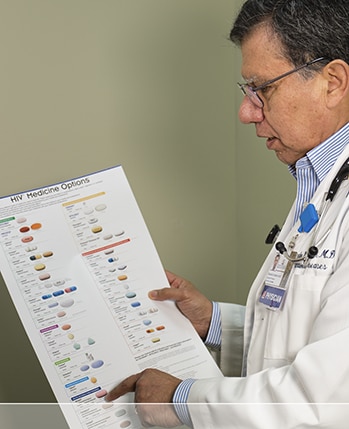Optimizing Health Outcomes
Today over 1.2 million people in the United States are living with HIV - one in eight people living with HIV don't know it. Minority groups, such as African Americans and men who have sex with men, continue to be disproportionately affected.
The Ryan White HIV/AIDS Program serves over half a million people each year. Nearly three-quarters of RWHAP clients are from racial/ ethnic minority populations and nearly two-thirds of RWHAP clients are living at or below 100% of the federal poverty level.
2016 and Beyond
The new theme set by HRSA for 2016 through 2020 is "Optimizing Health Outcomes." Over the next four years, as federal and state government agencies, medical providers, and community champions work toward achieving the national goals to end the HIV epidemic, it is important to focus on both preventing new infections and maintaining the health of those currently living with HIV.
At every level of the HIV care continuum, people continue to encounter challenges that can affect their ability to take care of their health. New health issues arise as people living with HIV move into middle and old age, which can complicate established treatment, and disparities in insurance, housing, or access to treatment can make it difficult to start or keep up with therapies.
HRSA's work toward an AIDS-free generation requires achieving optimal health outcomes in these complex situations and will rely on the integration of care across clinical settings and the continual utilization of data to inform strategic decisions moving forward.
The Ryan White HIV/AIDS Program provides a comprehensive system of care that includes primary medical care and essential support services for people living with HIV who are uninsured or underinsured. HRSA's HIV/AIDS Bureau continues to improve health outcomes through data utilization and through resources such as the Ryan White HIV/AIDS Program Annual Client-Level Data Report, 2015, disseminates Ryan White HIV/AIDS Program Services Report (RSR) data about clients served by the program, providing an in-depth look at demographics and socio-economic factors among clients served. In addition, the report provides selected analyses to measure RWHAP's progress toward achieving HIV-related health outcomes.
 Health Resources & Services Administration
Health Resources & Services Administration


